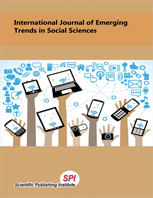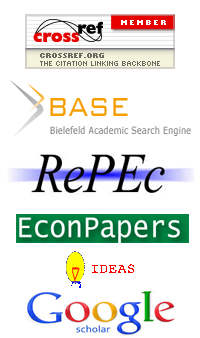Use of e-Governance by Administrators of Higher Learning Institutions
DOI:
https://doi.org/10.20448/2001.12.68.73Abstract
A good higher education system is necessary for inclusive development of a nation. Also, Electronic Governance (e-Governance) is becoming the backbone of any country’s growing economy in today’s world of internet enabled systems and processes. The word ‘electronic’ primarily indicates that the usage of technology in all matters of governance (Basu, 2004). e -Governance is understood as a set of activities involving the effective contribution of Information and Communication Technology (ICT) for strengthening administration and management in higher education system. It can create transparency between the colleges , universities and students Suklabaidya and Sen ( 2013). Similarly, the empirical research states influence of teaching staff towards Institutional preparedness for e-governance in Indian affiliating Universities is relatively high Balasubramanian and Govindaraju (2012). As well as e-Governance is the fundamental requirement to make the solution in the field of educational sectors problems. The present study attempts to ascertain the level of use of e-Governance by the administrators of the colleges. The survey design was adapted with the sample of 110 administrative Personnel at different level from 11 arts and science colleges affiliated to Bharathidasan University. The e-Governance scale with 30 items was validated and administered with the sample. Findings reveal that use of e-Governance by the administrative personnel was found average besides the extent of use of e-Governance in Government colleges was low comparing with Self-financing and Aided colleges. The demographic variables Gender and Locality did not have a major impact on the use of e-Governance.


